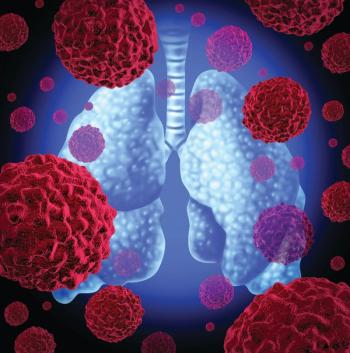
Pralsetinib elicited promising responses and tolerability in patients with RET fusion-positive non-small cell lung cancer (NSCLC), including those who were not eligible for platinum-based therapy.

Pralsetinib elicited promising responses and tolerability in patients with RET fusion-positive non-small cell lung cancer (NSCLC), including those who were not eligible for platinum-based therapy.

Patients with BRCA1/2-mutant, early HER2-negative breast cancer at a high risk of recurrence saw a clinically meaningful benefit 1 year after standard of care when treated with olaparib.

States without Medicaid expansion tended to have poorer cancer outcomes than states with higher income limits on eligibility, according to recent research.

When in-person classes on central venous catheter care were limited due to the COVID-19 pandemic, educational videos became even more important.

Knowing your patient’s beliefs and goals is key to providing ethical cancer care.

Nurse practitioners are more valuable than ever in the world of cancer care.

Factors such as being younger in age, having more comorbidities, and more prior cancer treatments all contribute to higher levels of sleep disturbance in patients with gastrointestinal cancers.

In particular, patients reported improved knowledge in survivorship/surveillance and brain fog following the 6-week program.

When patients rely on lip-reading to communicate, mask mandates have major effects on their care.

The “cheat sheet” assisted advanced practice providers using a step-by-step guide that is updated frequently to allow for the most up-to-date information.

Due to the COVID-19 pandemic, many patients’ and survivors’ care has changed, but one nurse and her team sought to make this population more comfortable and safe during these times with virtual visits.

Early research showed an improvement in provider recommendations of care for patients with breast cancer based on eight guideline metrics.

Survivors of cancer go through coping during the first year after treatment and require specific resources. But these were limited due to the pandemic resulting in survivors self-coping with known mechanisms.

The current scale often used to measure nurse quality of life may be missing some key factors, according to recent research.

The use of a smartphone mobile app showed that patients with cancer had higher adherence to oral chemotherapy regimens, especially when it came to safely monitoring chemotherapy toxicity and symptoms in real time.

A walking program dramatically increased the number of steps walked by patients being treated for hematologic malignancies.

Data presented at the Oncology Nursing Society’s 46th Annual Congress demonstrates that there is low level evidence that suggests medical marijuana or cannabinoids may reduce chemotherapy-related adverse events in patients with cancer.

While staff at a NCCN-designated oncology center responded positively to a new Chemotherapy Education Policy, its implementation did not increase the quality of education or decrease the incidence of “same day chemo teaches,” according to data presented at the ONS Annual Congress.

Certified nurse specialists play a crucial role in their institutions achieving Disease-Specific Care certifications – which can ultimately improve patient outcomes.

A poster presentation from the Oncology Nursing Society’s 46th Annual Congress describes a single-center clinician education program aimed at improving patient satisfaction.

A clinic for patients with a history of cancer led by an advanced practice nurse and a dietician may empower patients to improve their lifestyles through diet and exercise, especially since it may have an impact on their outcomes and future risk for diseases.

A professional social media presence can be beneficial for oncology nurses and their followers, but there are a few guidelines that nurses should keep in mind.

Repeated education and other protocols can decrease the spread of this deadly infection.

Women who were prescribed non-opioid pain management after their gynecologic cancer procedure tended to have quick recoveries.

Pain management is both an art and a science, according to Jeannine Brant, PhD, APRN, AOCN, FAAN

What can nurses do when they feel powerless to make a morally just decision at work?

Locally advanced non-small cell lung cancer traditionally had high relapse rates after initial treatment. Now durvalumab may bring better survival rates to these patients.

Nurses need to know the potentially life-threatening adverse events of CAR T-cell therapy.

Despite many exciting advances in recent years, there are still aspects of melanoma treatment that need to be further studied and understood, said Grace Cherry, NP, a nurse practitioner at UCLA Health.